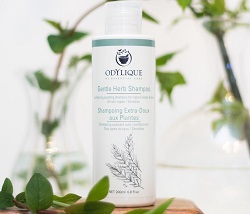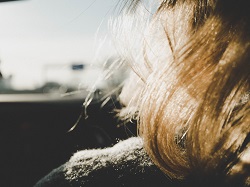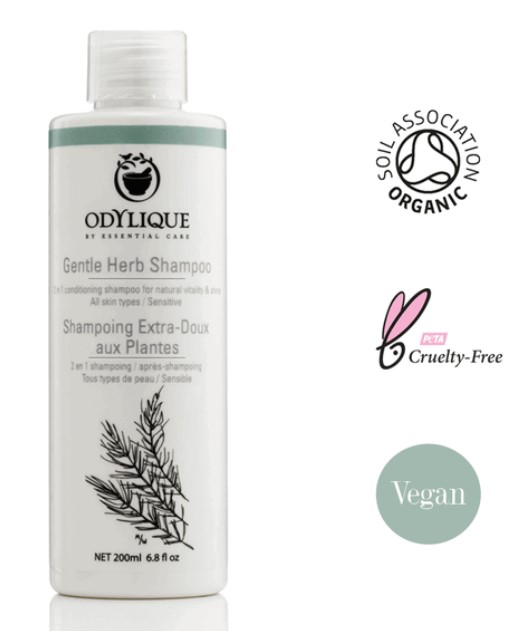7 Reasons To Choose Sulphate Free Shampoo
Many concerns surround the widespread use of Sodium lauryl sulphate (SLS) and its relatives sodium laureth sulphate (SLeS), sodium coco sulphate and ammonium lauryl sulphate (ALS). So much so that ‘sulphate free shampoo’ is now an accessible choice at retailers and hairdressers.

Used for many years, the sulphate ‘family’ is found widely as a main ingredient in hair and skin care products as well as toothpaste. It is a high potency, low cost synthetic detergent, also widely employed in household cleaners and industrial de-greasants for engines and factory floors.
Have you considered a sulphate free shampoo? Here are 7 key reasons why it’s worth finding an alternative:
1. Sulphates are harsh detergents that can strip the scalp of its natural oils and potentially cause irritation
Our living, breathing skin depends on the small amount of oils it produces to maintain its natural protective barrier. This barrier helps keep hair and scalp healthy, supple and well nourished.
Repeatedly stripping these oils away – which detergents and especially the stronger ones like sulphates are designed to do - undermines this protective function. This can lead to:
- Dry and brittle hair,
- Itchy, flaky skin and scalp and dermatitis.
- SLS is so strong that studies show it can aggravate existing atopic dermatitis (eczema)
The skin damaging effects are so well known that SLS is commonly applied to induce irritation (typically at just 2% concentration) prior to clinically testing the efficacy of anti-irritant and anti-inflammatory products.
In shampoo and other rinse-off products, SLS is classed as ‘safe’ i.e. non-irritant. But the studies assume the products are used briefly, not continually, and are thoroughly rinsed off. No studies have thoroughly analysed the impact of daily use of SLS or SLeS over several years, or allow for the fact that shampoos may be rubbed well in and spend several minutes on the scalp. Moreover, detergents are often incorporated at quite high concentration (15%) in shampoos.
2. Sulphate free shampoo cleans hair just as well!
SLS free shampoo doesn’t mean compromising on performance. It’s a common – and understandable - misconception that lots of lather and bubbles is necessary to make your hair clean. A milder, less bubbly shampoo really can do the job just as well.

3. Sodium laureth sulphate or ammonium laureth sulphate is damaging to the environment
The ‘eth’ part of the name means that the sulphate has been made by a process called ethoxylation. Ethoxylation is far from a clean process, and is not allowed under organic standards because of the polluting effect on our waterways and environment.
4. The toxic effect of ethoxylates like Sodium laureth sulphate is far from understood
Contrary to articles circulating the internet a few years ago, SLS does not cause cancer. However, the effect of ethoxylated chemicals like SLES is still not fully understood. Scientists believe there is a risk of contamination with free amines (DEA, MEA and TEA) from other ingredients that may be present in a product like shampoo and it is the ‘cocktail effect’ of these chemicals that can form carcinogenic (cancer forming) nitrosamines.
5. Sulphates seem to damage coloured hair
Sulphates are such effective detergents that they seem to scrub off the dye in hair colour too. While the evidence for this is only anecdotal at present, even the product development director for L’Oréal Paris whose lines include several shampoos with SLeS, has admitted that “sulfate-free shampoos are gentler on the hair fibre”*. The outer layer of the hair fibre seems to open and the colour fades out. Actress Eva Longoria Parker has been talking about this in adverts on behalf of L’Oréal.

6. Curly hair apparently doesn’t like sulphates either
Similarly, there’s evidence from comments on web forums like naturallycurly.com, that sulphates interfere with curling and straightening products too.
7. Sulphate free can be a better indicator of a generally 'cleaner' shampoo
Shampoos labelled sulphate or SLS free, generally have less harsh detergents as well as a higher level of nourishing ingredients that encourage scalp health, smooth the follicles and promote shine. In that respect they also provide a reasonable indicator of a more hair- and scalp-friendly shampoo. But ‘Sulphate Free’ may still mean harsh preservatives, fragrance and other potential irritants. Organic certification is a really a much better gauge that a shampoo formulation is entirely ‘clean’.
Our shampoos were the first ever to gain organic certification in the UK (back in 2004). Our formula, while updated for advances in green technology, is still entirely sulphate free, 70% organic - and made from 100% natural origin ingredients. Gentle Herb Shampoo has received multiple awards as a 'Free From' shampoo, as well as an Observatoire des Cosmetiques award for Best Sensitive Scalp Shampoo.
References:
- Nassif, A., Chan, S. C., Storrs, F. J., & Hanifin, J. M. (1994). Abnormal skin irritancy in atopic dermatitis and in atopy without dermatitis. Archives of Dermatology, 130(11), 1402-7.
- Australian Government Department of Health. (2012). Retrieved October 30, 2014 from http://www.nicnas.gov.au/chemical-information/imap-assessments/imap-group-assessment-report?assessment_id=177
- Final report on the safety assessment of sodium lauryl sulphate. Journal of the American College of Toxicology; 1983; 2(7).
- ACT. (1983). Final report of the safety assessment of sodium laureth sulphate and ammonium laureth sulphate. Journal of the American College of Toxicology, 2(5), 1- 34. Retrieved October 30, 2014 from http://ijt.sagepub.com/content/2/5/1.abstract
- *http://www.nytimes.com/2010/09/30/fashion/30Skin.html?_r=0 Accessed on 24th March 2015.

